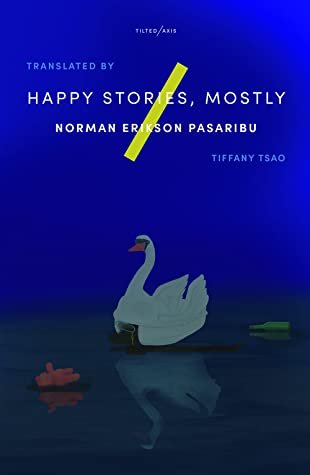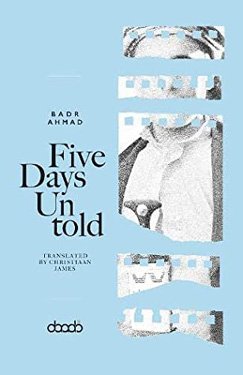This group of short stories by Indonesian author Norman Erikson Pasaribu has a playful, metafictional vibe while evoking many vivid characters and situations that contain a great deal of emotional heft. Many focus on the points of views of characters related to or connected with homosexuals whether it be a mother grieving for her son who committed suicide, a man whose close friend turns out to be gay or a woman who snoops through the underwear drawer of her son's husband. The feelings of marginalization and isolation which accompanies much of gay life is approached at arm's length. This sense is carried through the opening and closing stories which are in many ways about the nature of fiction itself. The first story begins in a creative writing class. The final story concerns a woman aware she is being written and finds empty space when she tries to transcend the borders of what is constructed for her. All this ties into the presence of religion throughout the stories and questions concerning omnipotence, destiny and God. These tales collectively give a fascinating insight into Indonesian life and individuals sidelined by mainstream society.
As with many collections of stories, there were some which stood out as stronger than others. Perhaps this has to do with the way there is an almost equal division between ones which depict specific realistic situations and others which self consciously play with narrative voice to verge more into the supernatural. I felt the strongest of the later category was ''Welcome to the Department of Unanswered Prayers' where the an individual is inducted into the bureaucracy of heaven. I would have loved to see stories such as 'So What's Your Name, Sandra?' and 'Ad Maiorem Dei Gloriam' developed into longer narratives. I think it's easier for me to feel an immediate connection when the presence of the author's hand isn't so strongly felt. Though I really appreciate that the truth can't always be approached directly, I wasn't able to connect as strongly to stories which seemed like they were in direct dialogue with certain texts or aspects of Indonesian life I was unfamiliar with. That's not necessarily the storyteller's fault, but it's perhaps an inevitable consequence of reading about a foreign culture. So I really appreciated that the Tilted Axis Press edition of this collection included at the end a discussion between the author and translator where they described some of the references Pasaribu played off from and his writing technique. I enjoyed the author's innovative approach to these tales and would love to read a full novel written by him.
















